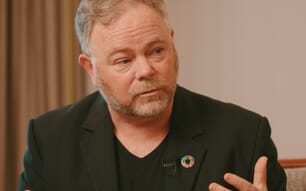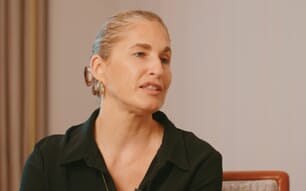
The interview is part of a new series filmed by The Fish Site’s media team at dsm-firmenich’s recent Global Aqua Days event in Athens.
As Standen highlights to The Fish Site’s Moritz Mueller, the company is investing heavily in feed additives that improve fish health and welfare. Standen points to recent trials at Stirling University where phytogenic essential oils achieved a 68 percent reduction in sea lice attachment – tackling what he calls “the single biggest problem in salmon”. The company is also preparing to launch a postbiotic product in India later this year, designed to support shrimp resilience against white spot and other pervasive diseases.
These innovations reflect a wider industry shift. “A few years ago, customers were focused almost entirely on cost reduction,” Standen explains. “Now the conversation is much more about health and welfare.”
Rising awareness of fish welfare, combined with climate-driven challenges such as rising sea temperatures, is pushing farmers to look for proactive, rather than purely therapeutic, solutions.
Preventive strategies, from gut health to gill and skin integrity, are becoming priorities.
Standen stresses the economic rationale: “The biggest cost in shrimp farming is crop failure. Prevention not only protects stock but delivers better returns on investment.”
Convincing farmers to commit to upfront costs remains a hurdle, but dsm is framing these tools as value creators rather than expenses.
Feed ingredients are another major area of focus. With aquaculture’s growth outpacing fisheries, sourcing sustainable proteins and oils is a pressing concern. dsm is advancing its single-cell protein initiative, Smart Protein, now achieving 69 percent crude protein content with improved amino acid profiles. While no “perfect ingredient” exists, Standen argues that expanding the basket of available raw materials – whether via marine by-products, novel proteins, or local alternatives – is key to resilience.
Looking ahead, he is particularly excited about the company’s new form of vitamin D3, called Hi-D, which has just received a positive safety opinion from the European Food Safety Authority. In trials, according to Standen, this highly bioavailable form of the vitamin has improved salmon growth rates by over 10 percent, enhanced wound healing and supported heart health.
“It ticks so many boxes for sustainability and performance. The industry needed it yesterday,” he says.







